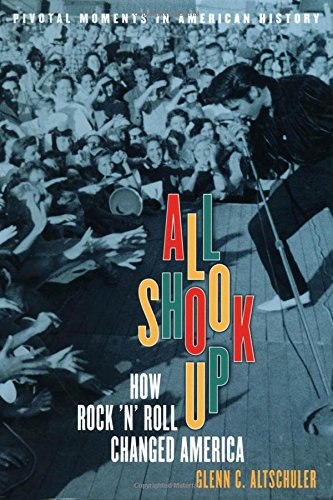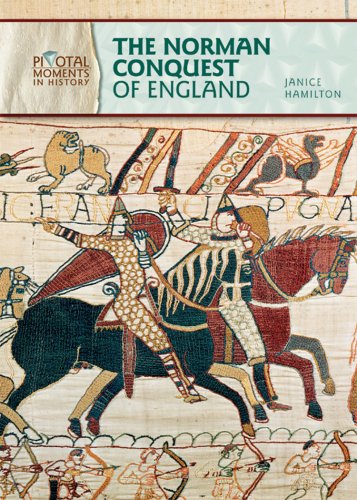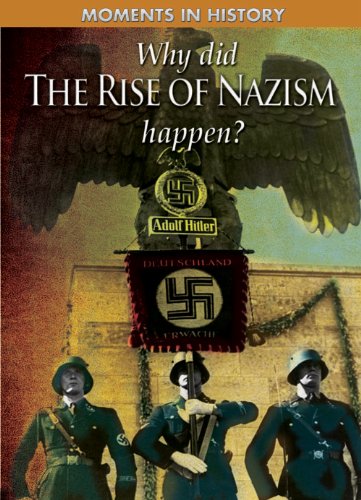-
The Battle of Midway
Craig L. Symonds
Paperback (Oxford University Press, Usa, Sept. 1, 2013)There are few moments in American history in which the course of events tipped so suddenly and so dramatically as at the Battle of Midway. At dawn of June 4, 1942, a rampaging Japanese navy ruled the Pacific. By sunset, their vaunted carrier force, the Kido Butai, had been sunk and their grip on the Pacific had been loosened forever. In this absolutely riveting account of a key moment in the history of World War Ii, leading naval historian Craig L. Symonds paints an unforgettable portrait of ingenuity, courage, and sacrifice. Symonds begins with the arrival of Admiral Chester A. Nimitz at Pearl Harbor after the devastating Japanese attack, and describes the key events leading to the climactic battle, including both Coral Sea the first battle in history against opposing carrier forces and Jimmy Doolittle's daring raid of Tokyo. He focuses throughout on the people involved, offering telling portraits of Admirals Nimitz, Halsey, Spruance and numerous other Americans, as well as the leading Japanese figures, including the poker loving Admiral Yamamoto. Symonds' account of the battle itself is masterful, weaving together the many disparate threads of attack attacks which failed in the early going that ultimately created a five minute window in which three of the four Japanese carriers were mortally wounded, changing the course of the Pacific war in an eye blink.
-
All Shook Up: How Rock 'n' Roll Changed America
Glenn C. Altschuler
Paperback (Oxford University Press, Dec. 9, 2004)The birth of rock 'n roll ignited a firestorm of controversy--one critic called it "musical riots put to a switchblade beat"--but if it generated much sound and fury, what, if anything, did it signify? As Glenn Altschuler reveals in All Shook Up, the rise of rock 'n roll--and the outraged reception to it--in fact can tell us a lot about the values of the United States in the 1950s, a decade that saw a great struggle for the control of popular culture. Altschuler shows, in particular, how rock's "switchblade beat" opened up wide fissures in American society along the fault-lines of family, sexuality, and race. For instance, the birth of rock coincided with the Civil Rights movement and brought "race music" into many white homes for the first time. Elvis freely credited blacks with originating the music he sang and some of the great early rockers were African American, most notably, Little Richard and Chuck Berry. In addition, rock celebrated romance and sex, rattled the reticent by pushing sexuality into the public arena, and mocked deferred gratification and the obsession with work of men in gray flannel suits. And it delighted in the separate world of the teenager and deepened the divide between the generations, helping teenagers differentiate themselves from others. Altschuler includes vivid biographical sketches of the great rock 'n rollers, including Elvis Presley, Fats Domino, Chuck Berry, Little Richard, Jerry Lee Lewis, and Buddy Holly--plus their white-bread doppelgangers such as Pat Boone.Rock 'n roll seemed to be everywhere during the decade, exhilarating, influential, and an outrage to those Americans intent on wishing away all forms of dissent and conflict. As vibrant as the music itself, All Shook Up reveals how rock 'n roll challenged and changed American culture and laid the foundation for the social upheaval of the sixties.
-
Washington's Crossing
David Hackett Fischer
Paperback (Oxford University Press, Feb. 1, 2006)Six months after the Declaration of Independence, the American Revolution was all but lost. A powerful British force had routed the Americans at New York, occupied three colonies, and advanced within sight of Philadelphia.Yet, as David Hackett Fischer recounts in this riveting history, George Washington and many other Americans refused to let the Revolution die. On Christmas night, as a howling nor'easter struck the Delaware Valley, he led his men across the river and attacked the exhausted Hessian garrison at Trenton, killing or capturing nearly a thousand men. A second battle of Trenton followed within days. The Americans held off a counterattack by Lord Cornwallis's best troops, then were almost trapped by the British force. Under cover of night, Washington's men stole behind the enemy and struck them again, defeating a brigade at Princeton. The British were badly shaken. In twelve weeks of winter fighting, their army suffered severe damage, their hold on New Jersey was broken, and their strategy was ruined.Fischer's richly textured narrative reveals the crucial role of contingency in these events. We see how the campaign unfolded in a sequence of difficult choices by many actors, from generals to civilians, on both sides. While British and German forces remained rigid and hierarchical, Americans evolved an open and flexible system that was fundamental to their success. The startling success of Washington and his compatriots not only saved the faltering American Revolution, but helped to give it new meaning.
-
A Storm of Witchcraft: The Salem Trials and the American Experience
Emerson W. Baker
Paperback (Oxford University Press, Oct. 1, 2016)Beginning in January 1692, Salem Village in colonial Massachusetts witnessed the largest and most lethal outbreak of witchcraft in early America. Villagers--mainly young women--suffered from unseen torments that caused them to writhe, shriek, and contort their bodies, complaining of pins stuck into their flesh and of being haunted by specters. Believing that they suffered from assaults by an invisible spirit, the community began a hunt to track down those responsible for the demonic work. The resulting Salem Witch Trials, culminating in the execution of 19 villagers, persists as one of the most mysterious and fascinating events in American history. Historians have speculated on a web of possible causes for the witchcraft that stated in Salem and spread across the region-religious crisis, ergot poisoning, an encephalitis outbreak, frontier war hysteria--but most agree that there was no single factor. Rather, as Emerson Baker illustrates in this seminal new work, Salem was "a perfect storm": a unique convergence of conditions and events that produced something extraordinary throughout New England in 1692 and the following years, and which has haunted us ever since.Baker shows how a range of factors in the Bay colony in the 1690s, including a new charter and government, a lethal frontier war, and religious and political conflicts, set the stage for the dramatic events in Salem. Engaging a range of perspectives, he looks at the key players in the outbreak--the accused witches and the people they allegedly bewitched, as well as the judges and government officials who prosecuted them--and wrestles with questions about why the Salem tragedy unfolded as it did, and why it has become an enduring legacy.Salem in 1692 was a critical moment for the fading Puritan government of Massachusetts Bay, whose attempts to suppress the story of the trials and erase them from memory only fueled the popular imagination. Baker argues that the trials marked a turning point in colonial history from Puritan communalism to Yankee independence, from faith in collective conscience to skepticism toward moral governance. A brilliantly told tale, A Storm of Witchcraft also puts Salem's storm into its broader context as a part of the ongoing narrative of American history and the history of the Atlantic World.
-
Washington's Crossing
David Hackett Fischer
Hardcover (Oxford University Press, Feb. 12, 2004)Six months after the Declaration of Independence, the American Revolution was all but lost. A powerful British force had routed the Americans at New York, occupied three colonies, and advanced within sight of Philadelphia.Yet, as David Hackett Fischer recounts in this riveting history, George Washington--and many other Americans--refused to let the Revolution die. On Christmas night, as a howling nor'easter struck the Delaware Valley, he led his men across the river and attacked the exhausted Hessian garrison at Trenton, killing or capturing nearly a thousand men. A second battle of Trenton followed within days. The Americans held off a counterattack by Lord Cornwallis's best troops, then were almost trapped by the British force. Under cover of night, Washington's men stole behind the enemy and struck them again, defeating a brigade at Princeton. The British were badly shaken. In twelve weeks of winter fighting, their army suffered severe damage, their hold on New Jersey was broken, and their strategy was ruined.Fischer's richly textured narrative reveals the crucial role of contingency in these events. We see how the campaign unfolded in a sequence of difficult choices by many actors, from generals to civilians, on both sides. While British and German forces remained rigid and hierarchical, Americans evolved an open and flexible system that was fundamental to their success. The startling success of Washington and his compatriots not only saved the faltering American Revolution, but helped to give it new meaning.
-
Why Did The Rise of the Nazis Happen?
Charles Freeman
Paperback (Gareth Stevens Pub Secondary Lib, Aug. 15, 2010)Examines the reasons for the rise of the Nazis, covering such factors as the harsh treatment of Germany by the victors of World War I, the unstable German economy, and the oratory and political ambitions of Adolf Hitler. Z
Z
-
The Iranian Revolution
Brendan January
Library Binding (Twenty First Century Books, Dec. 15, 2007)The Iranian people despised their leader, Reza Shah, who catered to foreign businesses while ruling Iran as a dictator. In 1979 discontent boiled up into all-out revolution. Led by the charismatic Ayatollah Khomeini, the Iranian people seized control and created a new government based on the Islamic religion. Z+
Z+
-
Braddock's Defeat: The Battle of the Monongahela and the Road to Revolution
David L. Preston
Hardcover (Oxford University Press, July 14, 2015)Braddock's Defeat by David Preston is a "classic work by one of the most gifted young historians working today," according to series editor David Hackett Fischer.Finalist, 2016 George Washington Book PrizeWinner, 2015 Guggenheim-Lehrman Prize in Military HistoryWinner, 2016 Distinguished Book Award in U.S. History, Society for Military HistoryWinner, 2016 PROSE Award for U.S. History Category, Association of American PublishersWinner, 2016 Distinguished Book Award, Society for Colonial WarsWinner, 2016 Judge Robert Woltz History Award, French & Indian War Foundation On July 9, 1755, British regulars and American colonial troops under the command of General Edward Braddock, commander in chief of the British Army in North America, were attacked by French and Native American forces shortly after crossing the Monongahela River and while making their way to besiege Fort Duquesne in the Ohio Valley, a few miles from what is now Pittsburgh. The long line of red-coated troops struggled to maintain cohesion and discipline as Indian warriors quickly outflanked them and used the dense cover of the woods to masterful and lethal effect. Within hours, a powerful British army was routed, its commander mortally wounded, and two-thirds of its forces casualties in one the worst disasters in military history.David Preston's gripping and immersive account of Braddock's Defeat, also known as the Battle of the Monongahela, is the most authoritative ever written. Using untapped sources and collections, Preston offers a reinterpretation of Braddock's Expedition in 1754 and 1755, one that does full justice to its remarkable achievements. Braddock had rapidly advanced his army to the cusp of victory, overcoming uncooperative colonial governments and seemingly insurmountable logistical challenges, while managing to carve a road through the formidable Appalachian Mountains. That road would play a major role in America's expansion westward in the years ahead and stand as one of the expedition's most significant legacies.The causes of Braddock's Defeat are debated to this day. Preston's work challenges the stale portrait of an arrogant European officer who refused to adapt to military and political conditions in the New World and the first to show fully how the French and Indian coalition achieved victory through effective diplomacy, tactics, and leadership. New documents reveal that the French Canadian commander, a seasoned veteran named Captain Beaujeu, planned the attack on the British column with great skill, and that his Native allies were more disciplined than the British regulars on the field.Braddock's Defeat establishes beyond question its profoundly pivotal nature for Indian, French Canadian, and British peoples in the eighteenth century. The disaster altered the balance of power in America, and escalated the fighting into a global conflict known as the Seven Years' War. Those who were there, including George Washington, Thomas Gage, Horatio Gates, Charles Lee, and Daniel Morgan, never forgot its lessons, and brought them to bear when they fought again-whether as enemies or allies-two decades hence. The campaign had awakened many British Americans to their provincial status in the empire, spawning ideas of American identity and anticipating the social and political divisions that would erupt in the American Revolution.
-
The Bay of Pigs
Howard Jones
Paperback (Oxford University Press, Sept. 7, 2010)In The Bay of Pigs, Howard Jones provides a concise, incisive, and dramatic account of the disastrous attempt to overthrow Castro in April 1961. Drawing on recently declassified CIA documents, Jones deftly examines the train of missteps and self-deceptions that led to the invasion of U.S.-trained exiles at the Bay of Pigs. Ignoring warnings from the ambassador to Cuba, the Eisenhower administration put in motion an operation that proved nearly unstoppable even after the inauguration of John F. Kennedy. The CIA and Pentagon, meanwhile, both voiced confidence in the outcome of the invasion, especially after coordinating previous successful coups in Guatemala and Iran. And so the Kennedy administration launched the exile force toward its doom in Cochinos Bay on April 17, 1961. Jones gives a riveting account of the battle--and the confusion in the White House--before moving on to explore its implications. The Bay of Pigs, he writes, set the course of Kennedy's foreign policy. It was a humiliation for the administration that fueled fears of Communist domination and pushed Kennedy toward a hardline "cold warrior" stance. But at the same time, the failed attack left him deeply skeptical of CIA and military advisers and influenced his later actions during the Cuban missile crisis.
-
All Shook Up: How Rock 'n' Roll Changed America
Glenn C. Altschuler
Hardcover (Oxford University Press, Aug. 7, 2003)The birth of rock 'n roll ignited a firestorm of controversy--one critic called it "musical riots put to a switchblade beat"--but if it generated much sound and fury, what, if anything, did it signify? As Glenn Altschuler reveals in All Shook Up, the rise of rock 'n roll--and the outraged reception to it--in fact can tell us a lot about the values of the United States in the 1950s, a decade that saw a great struggle for the control of popular culture. Altschuler shows, in particular, how rock's "switchblade beat" opened up wide fissures in American society along the fault-lines of family, sexuality, and race. For instance, the birth of rock coincided with the Civil Rights movement and brought "race music" into many white homes for the first time. Elvis freely credited blacks with originating the music he sang and some of the great early rockers were African American, most notably, Little Richard and Chuck Berry. In addition, rock celebrated romance and sex, rattled the reticent by pushing sexuality into the public arena, and mocked deferred gratification and the obsession with work of men in gray flannel suits. And it delighted in the separate world of the teenager and deepened the divide between the generations, helping teenagers differentiate themselves from others. Altschuler includes vivid biographical sketches of the great rock 'n rollers, including Elvis Presley, Fats Domino, Chuck Berry, Little Richard, Jerry Lee Lewis, and Buddy Holly--plus their white-bread doppelgangers such as Pat Boone. Rock 'n roll seemed to be everywhere during the decade, exhilarating, influential, and an outrage to those Americans intent on wishing away all forms of dissent and conflict. As vibrant as the music itself, All Shook Up reveals how rock 'n roll challenged and changed American culture and laid the foundation for the social upheaval of the sixties.
-
The Norman Conquest of England
Janice Hamilton
Library Binding (Twenty-First Century Books, Oct. 1, 2007)In 1066, William the Conqueror invaded England and changed the course of English and European history.
-
Why Did the Rise of the Nazis Happen?
Charles Freeman
Library Binding (Gareth Stevens Pub Secondary Lib, Sept. 27, 2010)Following their defeat during World War I, the Germans were looking for new leadership. Nazi Germany, also called the Third Reich, began when Adolf Hitler became Chancellor of Germany under the National Socialist German Workers Party (NSDAP) whose followers were called Nazis. Why the Germans embraced the Nazis rise to power is examined in this thoughtful book, which includes panels featuring subject-matter expert opinions to encourage critical thinking. Z
Z